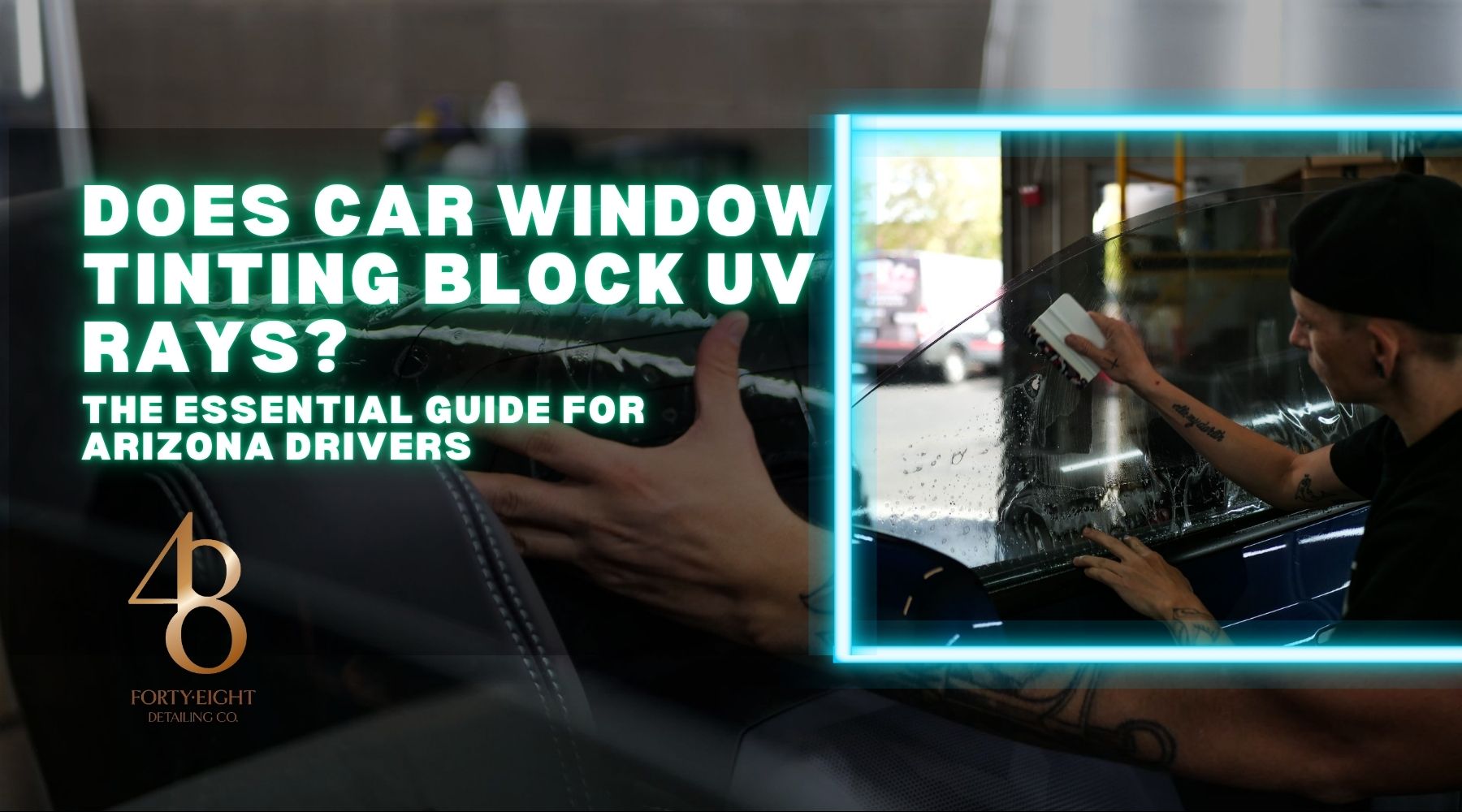When it comes to protecting yourself and your vehicle from the sun’s harsh rays, one of the most effective solutions is car window tinting. If you live in a place like Surprise, Arizona, where the sun shines relentlessly throughout the year, understanding the benefits of window tinting especially in terms of UV protection is crucial.
But does car window tint block UV rays? Let’s explore how tinting works to protect you and your car.
Why UV Protection Matters for Your Skin and Car
Before we explore how window tint blocks UV rays, let’s first understand what UV rays are and why they’re harmful.

What Are UV Rays?
Ultraviolet (UV) rays are a form of radiation emitted by the sun. They can be divided into three types based on their wavelength: UVA, UVB, and UVC. For our purposes, we’re concerned with UVA and UVB rays, both of which can be damaging to your skin and your car.
- UVA Rays: These are the longest UV rays and penetrate deep into the skin, leading to premature aging, wrinkles, and an increased risk of skin cancer.
- UVB Rays: These rays affect the outer layer of your skin, causing sunburn and directly contributing to the development of skin cancer.
The Risks of UV Exposure
In a sunny state like Arizona, car owners are particularly vulnerable to the effects of UV exposure. Even when you’re inside your vehicle, UVA and UVB rays can still penetrate through standard glass windows, exposing you to potential health risks and causing long-term damage to your car’s interior. This is where UV protection becomes crucial.
How Does Car Window Tint Block UV Rays?
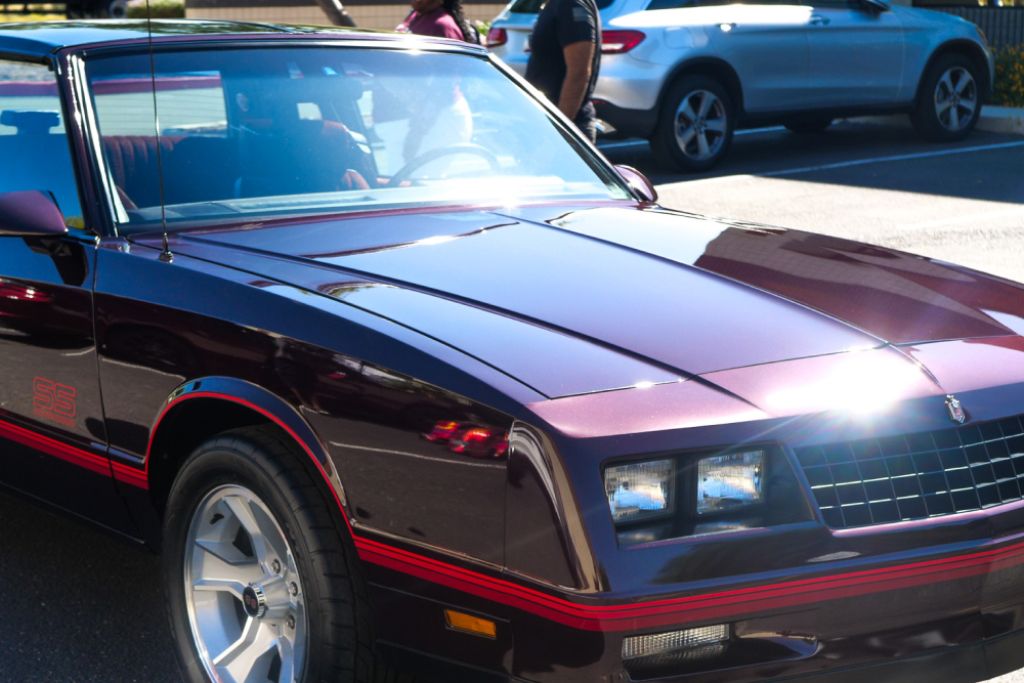
Now that we understand the dangers of UV exposure, it’s time to see how window tinting helps protect against these harmful rays.
The Science Behind UV Protection in Tints
Car window tints are designed to block a significant amount of UV radiation. These films utilize a variety of materials, including metallic particles or ceramic compounds, that absorb or reflect UV rays. The more advanced the film, the better it can block UV radiation.
- Dyed Window Tint: This basic tint offers a certain degree of UV protection by absorbing UV rays.
- Metallic Window Tint: These films reflect UV radiation using metallic particles embedded within the tint. They provide better protection than dyed films but may interfere with electronic signals.
- Ceramic Window Tint: The most advanced option, ceramic tints block up to 99% of UVA and UVB rays without affecting signal reception. Ceramic window films are widely considered the best for UV protection and heat rejection.
How Much UV Protection Do Car Window Tints Provide?
One of the most frequently asked questions about car window tinting is its effectiveness in blocking UV rays. Depending on the type of tint, the protection can vary:
- Basic Tints: Offer around 50% to 60% UV protection.
- Metallic Tints: Provide approximately 80% to 90% UV protection.
- Ceramic Tints: Block up to 99% of harmful UV rays, making them the most effective choice for skin protection and preserving your vehicle’s interior.
In Arizona, where the sun is intense and persistent, opting for high-quality tint with UV protection film for cars is not just a luxury but a necessity.
How Does UV Protection in Car Window Tints Compare to Sunscreen?
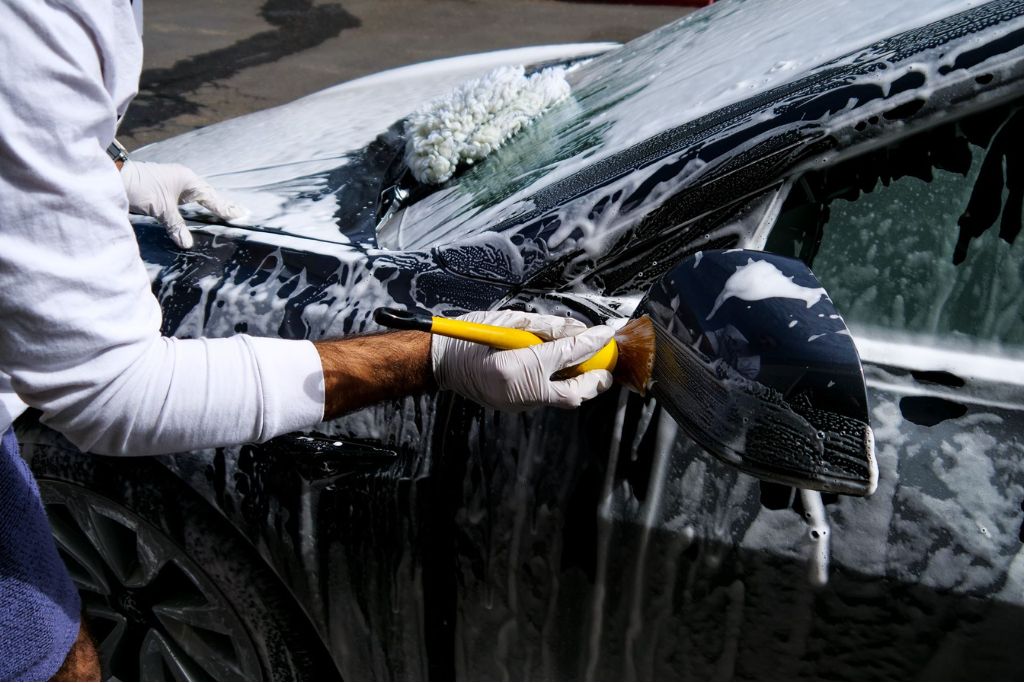
While sunscreen offers essential protection for your skin when you’re outdoors, it doesn’t protect you while you’re inside your vehicle. Plus, sunscreen needs to be reapplied regularly to remain effective.
Car window tinting, on the other hand, provides continuous, long-lasting protection from UV rays, especially when you’re driving in direct sunlight. It’s a one-time investment that ensures both UV ray blocking tint and comfort for you and your passengers.
The Best Tints for UV Protection
Not all tints are created equal when it comes to blocking UV rays. If you’re looking for the best protection, consider the following options:
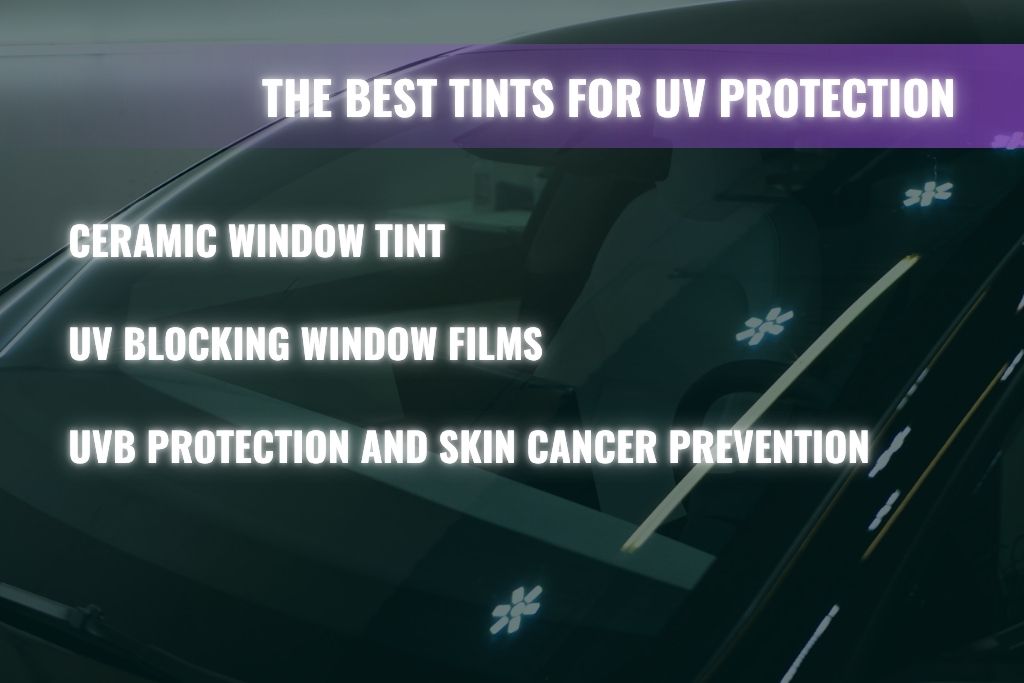
Ceramic Window Tint
As mentioned, ceramic window tint offers the best UV protection, blocking up to 99% of harmful rays. It’s an excellent choice for Arizona drivers who want top-notch protection while maintaining visibility and comfort. Ceramic tints also have the added benefit of reducing heat, making your car cooler during the scorching summer months.
UV Blocking Window Films
For those on a budget, there are still options for UV protection. UV-blocking window films can provide significant protection without breaking the bank, although they may not offer the same level of heat reduction or visibility benefits as ceramic films.
UVB Protection and Skin Cancer Prevention
If you’re serious about protecting your skin, look for UVB protection window film that shields explicitly against the harmful UVB rays responsible for sunburns and skin damage. Installing UV protection window tint can significantly reduce your risk of skin damage and contribute to skin cancer prevention in the long run.
Are UV-Blocking Car Tints Necessary for All Drivers?
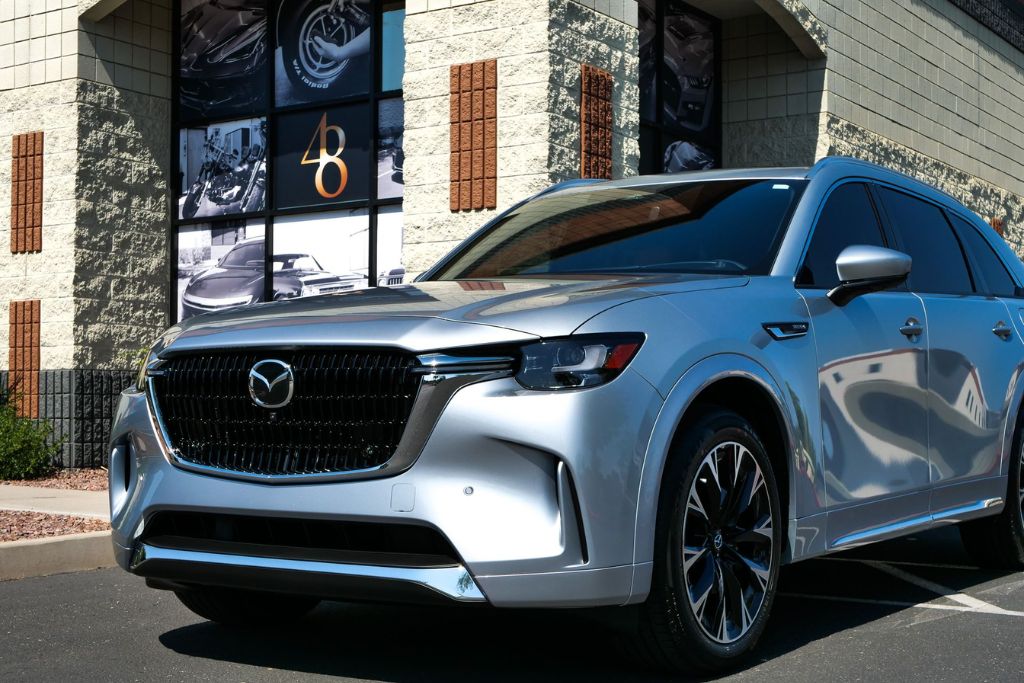
Not every driver may think that UV protection is essential. However, the truth is that anyone who spends long hours on the road is susceptible to UV radiation. Whether you’re commuting or road-tripping, your skin is exposed to harmful rays, even through windows. Here are a few reasons why UV protection is necessary:
- Sunburn: UV rays can cause sunburns even when you’re inside your car, particularly on your arms, neck, and face.
- Interior Protection: UV rays not only damage your skin but also contribute to fading and cracking of your car’s interior materials, such as upholstery and dashboard.
- Long-Term Health Risks: Prolonged exposure to UV rays can lead to premature aging and increase your risk of developing skin cancer.
Additional Benefits of Car Window Tinting
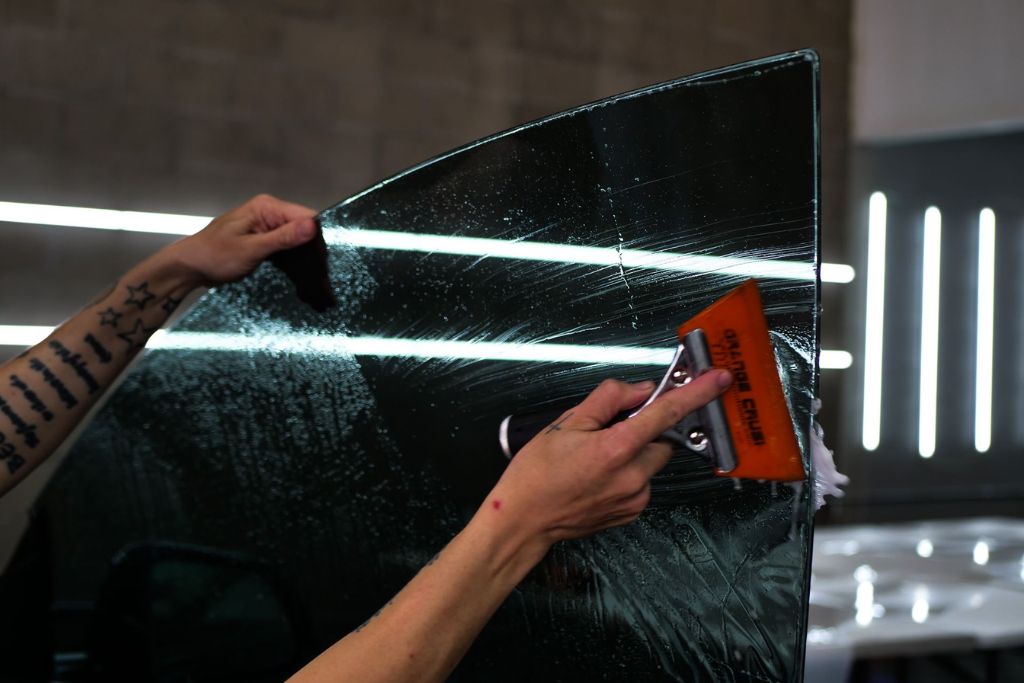
While UV protection is a significant advantage, automotive window tint UV block films offer several additional benefits:
- Heat Reduction: Tinted windows can block a significant amount of solar heat, making your car more comfortable, especially during the intense Arizona summers.
- Glare Reduction: Tints can reduce the glare from the sun, improving visibility and reducing eye strain while driving.
- Increased Privacy and Security: Darker tints offer enhanced privacy and can help deter theft by making it more difficult to see into your vehicle.
How Long Does UV Protection in Car Window Tints Last?
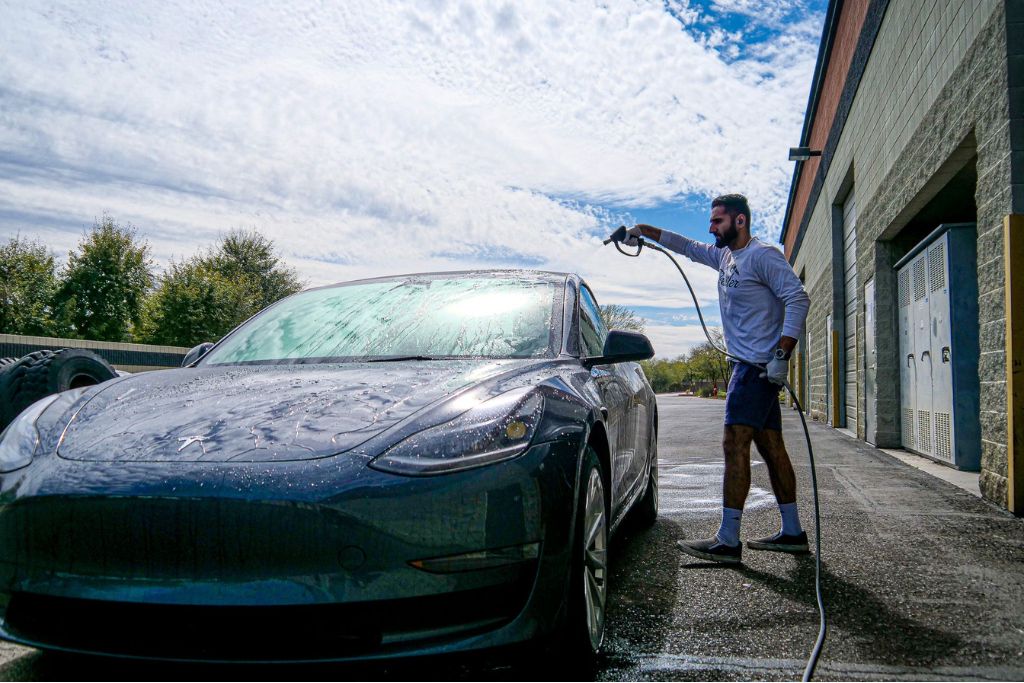
One of the key advantages of car window tinting is its long-lasting protection. High-quality tints, such as UV-blocking window film, can last for many years, with some offering lifetime warranties. With proper care, your tint will continue to block harmful UV rays and protect your car’s interior for as long as the tint remains intact.
Conclusion
Protect Yourself and Your Car with UV-Blocking Window Tint
In Arizona, where the sun is intense, investing in UV protection car window tint is a wise decision for both your health and the longevity of your vehicle. High-quality tints, especially ceramic tints, offer superior protection against harmful UV rays, help keep your car cooler, and protect your interior from sun damage.

If you’re looking for professional installation, consider visiting 48 Detailing, your trusted provider for high-performance window tinting in Surprise, Arizona. With our expert installation and top-tier films, you can rest assured that your car will be well-protected from the sun’s harmful effects.
For more information, refer to our Ceramic Tint Guide or explore whether ceramic tinting is worth it.
FAQ
How do car window tints block UV rays?
- Tints use UV-absorbing compounds or metallic particles to block harmful UV radiation, keeping you and your car protected.
What percentage of UV rays do car window tints block?
- High-quality tints can block up to 99% of UV rays, with ceramic tints offering the best protection.
Are all car window tints effective at blocking UV rays?
- No, the level of UV protection varies depending on the type of tint. Ceramic tints offer the highest level of UV protection.
Does the darkness of the tint affect UV protection?
- While darker tints provide more privacy, UV protection is more dependent on the material used in the film, such as ceramic or metallic particles.
Can UV rays penetrate through tinted windows?
- High-quality tints block nearly all UV rays, but lower-quality tints may allow some UV radiation to pass through.
Is UV protection in car window tints necessary for all drivers?
- Yes, anyone who spends time on the road, especially in sunny areas like Arizona, should consider UV protection to avoid skin damage and protect their vehicle.

